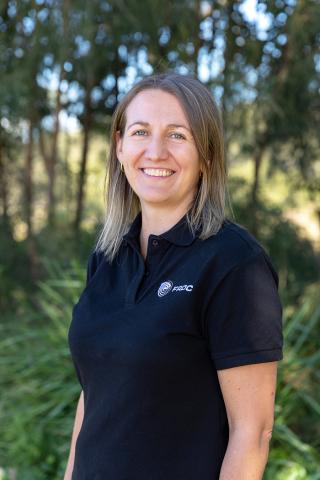FRDC is working with stakeholders to develop the skills and leadership essential to the future of fishing and aquaculture
By Michelle Daw
The ability to attract, develop and retain capable people is one of the major challenges facing Australian fishing and aquaculture.
FRDC is working with stakeholders to invest in the potential of people to thrive in an uncertain world through a plan to build capability and capacity.
FRDC Managing Director Dr Patrick Hone says it is imperative that people involved in fishing and aquaculture are supported to be innovative and resilient to change and that the sector builds a culture of lifelong learning.
“The fishing and aquaculture workforce is ageing, and there is strong competition with other industries to attract and retain capable people,”
he says.
“Our stakeholders have said we need to do things differently. We need to create workforce sustainability in fishing and aquaculture to contribute to regional and remote communities.
“This was one of the strongest signals we received from the consultation with stakeholders to inform our Research and Development Plan 2020–2025,” he says.
Delivery of the Capability and Capacity Plan will be co-designed with stakeholders and take a multipronged approach.
“It’s about building connections and trust, creating visible career and development opportunities, improving how we attract and retain great people and encouraging different perspectives to solve challenges,” Patrick says.
The ‘Capability and Capacity Plan’ is focused on:
- determining future workforce needs;
- attracting and retaining capable people;
- connecting people and promoting collaboration;
- growing and nurturing diverse leaders;
- supporting innovation, learning and adaptation; and
- developing tools and resources to help people navigate career, leadership and development pathways.
Over the next 10 years, 41 per cent of jobs in agriculture, forestry and fisheries will be transformed by technology. One in three new jobs created in these industries will be tech-related, making digital and data literacy essential. People who can lead, solve problems, think differently and adapt are also critical to the success of fishing and aquaculture.
The new plan will build on current FRDC investment in people development, including the National Seafood Industry Leadership Program and bursaries and scholarships specific to fishing and aquaculture.
The plan will encourage students, educators and parents to explore careers in fishing and aquaculture and showcase science and research pathways, aiming to attract people with STEM (science, technology, engineering and maths) capabilities into fishing and aquaculture.
Resources and information will be available through a new online fishing and aquaculture people hub. New learning opportunities will also be developed, offering a combination of delivery methods, including self-directed, peer-to-peer, hybrid, face-to-face, and hands-on activities. f
Leading the charge for change
 FRDC’s Capability and Capacity Program is being led by Sally Roberts, who recently joined FRDC as Capability, Capacity and Culture Change Manager. She is passionate about unlocking individual and collective potential by developing people, and is experienced in leading collaborative research, development and extension projects to transform workplace practices and drive adoption of new technologies and methods.
FRDC’s Capability and Capacity Program is being led by Sally Roberts, who recently joined FRDC as Capability, Capacity and Culture Change Manager. She is passionate about unlocking individual and collective potential by developing people, and is experienced in leading collaborative research, development and extension projects to transform workplace practices and drive adoption of new technologies and methods.

Sally Roberts. Photo: Supplied
“Fishing and aquaculture offer a vast range of rewarding careers, from hands-on technical work through to applied science and the professions, such as management, marketing and accounting,” she says.
“I’m looking forward to working with our stakeholders to attract, retain and empower people to enable change in fishing and aquaculture.”
Prior to joining FRDC, Sally worked for Dairy Australia, where she led research and development projects focused on attracting, retaining and transitioning people to enable a capable workforce and safe, positive workplaces. She also worked in a variety of roles at the Department of Education and Training Victoria and with not-for-profit organisations in the UK.





